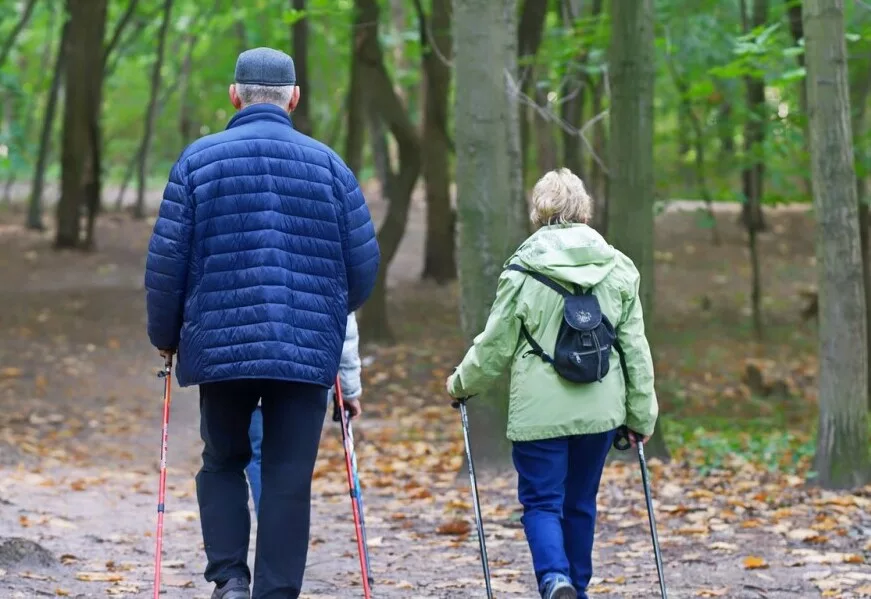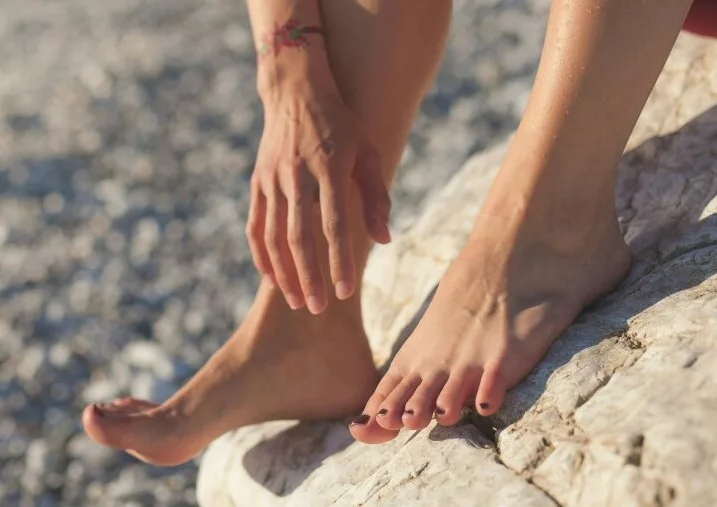Managing Your Health While Enjoying the Great Outdoors

Multiday hiking for seniors offers a fulfilling way to stay active and connect with nature, but it requires careful attention to health and chronic conditions. This comprehensive guide explores essential strategies to ensure a safe and enjoyable hiking experience.
If you’re an older hiker who’s read “Part One” and now considers a multiday hike doable, you might still have health concerns. How will these impact your hike? What can you control to ensure the best possible experience?
Staying Well Hydrated:

Proper hydration is crucial as it improves heat regulation, energy levels, and kidney health. As we age, the body’s thirst regulation can become less reliable, exacerbated by diuretic medications. Consulting your doctor before starting a new hiking regimen is advisable.
Many older hikers find themselves dehydrated without realizing it. Monitoring urine color—pale straw yellow indicates adequate hydration—is essential. Plan water consumption carefully, especially in dry environments. Apps and hiking groups often provide water point information crucial for planning.
Managing Bathroom Needs:
Proper hydration leads to more frequent urination, especially at night. For those uncomfortable with multiple trips outside the tent, pee bottles and P-style devices offer practical solutions. Practice at home before using them on the trail. Disposing of waste properly, such as carrying out used toilet paper, adheres to Leave No Trace principles.
Ensure Good Nutrition:

Maintaining a balanced diet on multiday hikes is vital for sustaining energy. Older hikers, who may lose appetite during exertion, benefit from nutrient-dense snacks and meals. Adjusting diets to include sufficient protein supports muscle maintenance and repair, essential for extended hikes.
Consider electrolyte balance if hiking strenuously in hot weather. While electrolyte drinks can help replace lost minerals, choose ones without excessive sugar, especially if you’re on medications that can interact with potassium.
Pulling in at the Train Station, aka Poo Stops:
Gut issues like constipation can arise from dehydration and dehydrated food. Include prunes in your diet for regularity and carry Laxettes and Imodium in your first aid kit for emergencies. Experiment with comfortable ways to manage bowel movements outdoors, such as sitting on logs or using support for knees and hips.
Calcium and Bone Health:
Maintaining calcium intake is crucial for older hikers, especially on long hikes where dairy and leafy greens are scarce. Consider supplements or calcium-rich foods like almonds, milk powder, and fortified cereals to support bone health during extended hikes.
Foot Care:

Proper foot care is crucial for seniors undertaking multiday hikes, as foot issues can quickly derail an expedition. Wear well-fitted, broken-in hiking boots and moisture-wicking socks to prevent blisters. Consider using orthotic inserts or specialized insoles to enhance comfort and support, especially if you have foot conditions like plantar fasciitis or arthritis. Carry foot care essentials such as blister treatment pads, moleskin, and a small foot repair kit to address minor issues promptly. Inspect feet daily for hot spots or redness and treat any issues promptly to avoid exacerbation.
Sun Protection:
Seniors are often more susceptible to sunburn and heat-related illnesses due to thinner skin and reduced heat tolerance. Protect yourself by wearing lightweight, breathable clothing that covers exposed skin. Use a broad-spectrum sunscreen with SPF 30 or higher, applying it generously and reapplying every two hours or after sweating. Wear a wide-brimmed hat and UV-blocking sunglasses to shield your face and eyes from harmful UV rays. Plan hiking routes that offer shade whenever possible, and schedule hikes during cooler parts of the day to minimize sun exposure and heat stress.
Managing Joint Pain:
Arthritis and joint stiffness can impact hiking comfort and mobility for seniors. Warm-up exercises before hiking and gentle stretching during breaks can help alleviate stiffness and improve joint flexibility. Consider using trekking poles to reduce joint strain and improve stability, especially on uneven terrain. Pack over-the-counter pain relievers like ibuprofen or acetaminophen in your first aid kit for pain management. Listen to your body and adjust hiking pace and intensity as needed to avoid overexertion and minimize joint discomfort throughout your hike.
Listening to Your Body:
Listening to your body during hikes prevents minor discomfort from becoming significant issues. Take breaks regularly, especially on thru hikes, to rest and hydrate. Address any health concerns promptly to avoid exacerbating conditions.
Medical Emergencies:
Carry a PLB or satellite messenger for emergencies, crucial for remote hiking. Knowing when to activate emergency services ensures prompt medical assistance if needed. Communication devices with two-way capabilities allow detailed symptom reporting, aiding emergency responders in decision-making.
Communication:
Share medical information with hiking partners and wear identification like a MedicAlert bracelet if hiking solo. Effective communication enhances safety, ensuring timely assistance in emergencies.
Managing Serious Chronic Conditions:

Consult healthcare professionals before embarking on long hikes with chronic conditions. Personalized advice on medication management and health monitoring prepares you for potential challenges on the trail. Consider logistics like medication storage and insurance coverage to manage health effectively during hikes.
Conclusion:
By following these strategies, seniors can confidently embark on multiday hiking adventures while prioritizing health and well-being. Proper preparation and attention to detail ensure a safe and enjoyable experience in the great outdoors.
** Here’s a little transparency. Our website contains affiliate links. This means if you click and purchase, we may receive a small commission. Don’t worry, there’s no extra cost to you. It is a simple way you can help support our mission to bring you quality content. **
(As an Amazon Associate, I earn from qualifying purchases)